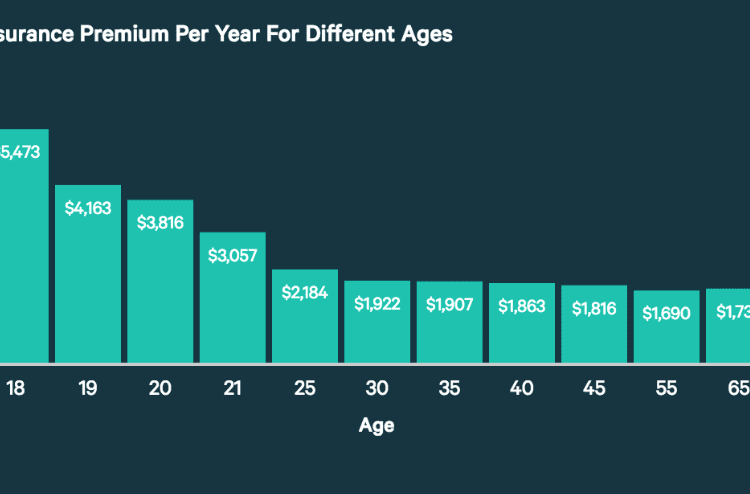In the face of seasonal patient surges, a hospital system’s ability to maintain seamless operations hinges on a scalable IT infrastructure. Overwhelmed systems can lead to critical treatment delays and expose sensitive data to security vulnerabilities. Private cloud hosting emerges as a flexible solution, enabling healthcare organizations to rapidly adapt their resources to fluctuating demands, ensuring uninterrupted service even during peak periods. Furthermore, in today’s evolving healthcare landscape, where data breaches pose a significant threat, the need for robust security is paramount. Private cloud hosting addresses this critical concern by providing a dedicated and secure environment, offering a suite of benefits specifically tailored to safeguard sensitive patient information and meet the unique demands of the healthcare sector.
Toc
The Advantages of Private Cloud Hosting for Healthcare

Private cloud hosting provides healthcare organizations with a robust and customizable cloud infrastructure that addresses their stringent data security and compliance requirements. By offering a dedicated, single-tenant environment, private cloud hosting ensures enhanced security, improved compliance with regulations such as HIPAA, and greater control over data privacy.
Enhancing Security and Compliance
One of the primary advantages of private cloud hosting for healthcare is its ability to meet rigorous security and compliance standards. With complete control over the cloud infrastructure, healthcare organizations can implement robust security measures, including advanced encryption, granular access controls, and comprehensive monitoring and logging. Moreover, private cloud hosting allows for the implementation of multi-factor authentication, requiring users to provide multiple forms of identification before gaining access to sensitive patient data. This adds an extra layer of security, making it significantly more difficult for unauthorized individuals to access protected information.
Ensuring HIPAA Compliance
Compliance with the Health Insurance Portability and Accountability Act (HIPAA) is a crucial concern for healthcare organizations. Private cloud hosting solutions are designed to address HIPAA requirements, with features such as encrypted data storage, secure network connectivity, and comprehensive audit trails. Many private cloud providers hold certifications like the HITRUST CSF, demonstrating their commitment to meeting the stringent requirements of HIPAA. By partnering with a private cloud provider that is HIPAA-compliant, healthcare organizations can confidently meet their regulatory obligations and safeguard patient information.
Improving Data Privacy and Control
Privacy is paramount in the healthcare sector, as patient data is often highly sensitive and personal. Private cloud hosting offers a dedicated, single-tenant environment that ensures complete control over data access and management. Healthcare organizations can tailor their cloud infrastructure to their specific needs, implementing customized security policies and access controls to protect sensitive information from unauthorized access or data breaches.
Scaling with Ease
As healthcare demands and patient volumes continue to evolve, the ability to scale resources seamlessly is essential. Private cloud hosting solutions provide the flexibility to accommodate changing needs, allowing healthcare organizations to scale up or down as required. For instance, in 2023, a notable hospital utilized a private cloud solution to successfully scale its operations during a surge in patient admissions due to a seasonal flu outbreak. The flexible infrastructure allowed them to quickly provision additional resources, ensuring seamless service delivery and preventing disruptions to patient care. This scalability ensures that the IT infrastructure can keep pace with the organization’s growth and adapt to fluctuations in demand without compromising performance or security.

When exploring private cloud hosting options for healthcare, it’s crucial to consider the various deployment models and choose the one that best aligns with your organization’s specific requirements.
Deployment Models for Private Cloud Hosting
On-Premises Private Cloud
An on-premises private cloud solution involves hosting the cloud infrastructure within the healthcare organization’s own data center. This approach offers the highest level of control and customization, as the organization maintains full ownership and management of the hardware, software, and networking components. However, it often comes with a significant upfront investment in hardware and software, and organizations must dedicate resources to ongoing maintenance and management, which can be a considerable operational burden.
Hosted Private Cloud
Hosted private cloud solutions involve partnering with a third-party provider to manage the cloud infrastructure on behalf of the healthcare organization. This model reduces the operational burden and can provide access to specialized expertise and support. Healthcare organizations can leverage the provider’s data centers, security measures, and compliance certifications while still maintaining a high degree of control over the cloud environment.
Managed Private Cloud
In a managed private cloud deployment, the healthcare organization outsources the management and maintenance of the private cloud infrastructure to a third-party provider. This approach offers the benefits of a dedicated, single-tenant cloud environment while shifting the day-to-day operational responsibilities to the provider. This can be particularly advantageous for healthcare organizations that lack the internal IT resources or expertise to manage a private cloud infrastructure.
Choosing the Right Private Cloud Provider for Healthcare
When selecting a private cloud provider for healthcare, it’s essential to carefully evaluate their capabilities and alignment with your organization’s specific needs. Key considerations should include security and compliance, scalability and performance, cost-effectiveness, and the level of support and expertise offered.
Prioritizing Security and Compliance
When selecting a provider, it is crucial to ensure they have a robust track record in security and compliance. Look for providers that hold relevant certifications, such as ISO 27001 or SOC 2, and employ measures that not only meet but exceed HIPAA requirements. Essential features to consider include end-to-end data encryption, stringent access controls that limit data access to authorized personnel only, as well as comprehensive logging and monitoring mechanisms that provide real-time insights and alerts for any suspicious activity or potential breaches.
Evaluating Scalability and Performance
Assessing a provider’s ability to efficiently scale resources up or down as needed is essential for any organization. This flexibility guarantees that the private cloud solution can seamlessly adapt to fluctuations in demand, whether during peak usage times or quieter periods. It is also important to evaluate the infrastructure’s performance capabilities, such as response times and throughput, to ensure that operations run smoothly and efficiently. Understanding the provider’s architecture and how it supports load balancing and resource allocation will contribute to a more reliable service.
Ensuring Cost-Effectiveness
When considering cost, it is vital to compare various pricing models and evaluate long-term expenses. This includes not only the initial capital investment but also ongoing operational costs, such as maintenance, support, and potential upgrades. Analyze all factors to determine which solution offers the best value for your organization, aligning with your budget constraints and resource allocation. Additionally, inquire about any hidden fees or costs that could impact the overall expenditure over time.
Prioritizing Support and Expertise
In today’s rapidly evolving tech landscape, having a reliable support system is paramount. Prioritize providers that offer timely and knowledgeable technical support, ensuring that assistance is readily available whenever issues arise. Look for teams of experts who not only understand the intricacies of the cloud environment but can also provide guidance through both the initial implementation phase and the ongoing management of the private cloud. Strong support can be a major differentiator and can significantly affect your organization’s success in utilizing cloud technologies effectively.
Case Studies: Private Cloud Hosting in Action

To better understand the benefits of private cloud hosting in healthcare, let’s explore a few real-world case studies.
Case Study #1: Improved Data Security and Compliance with Hosted Private Cloud
A large healthcare organization partnered with a third-party provider to migrate their IT infrastructure to a hosted private cloud solution. The move allowed them to centralize their data and implement enhanced security measures, including data encryption and access controls. With the provider handling ongoing maintenance and updates, they were able to free up internal resources for more strategic initiatives while meeting HIPAA compliance requirements.
Case Study #2: Seamless Scalability with Managed Private Cloud
A mid-sized hospital utilized a managed private cloud solution to improve scalability during peak periods of demand. The solution allowed them to quickly provision additional resources as needed, ensuring seamless operations during a surge in patient admissions due to a natural disaster. This flexibility also helped them save on operational costs by only paying for the resources they used during these spikes in demand.
Case Study #3: Cost-Effective Solution with On-Premises Private Cloud
A small medical practice opted for an on-premises private cloud solution as it aligned with their budget and specific data security needs. With full control over the hardware and software components, they were able to customize their private cloud environment while keeping costs manageable. They also had dedicated staff to manage and maintain the infrastructure, providing peace of mind that their data was secure and compliant.
4. https://kalimbatran.com/mmoga-the-best-blog-hosting-sites-for-aspiring-bloggers-in-2024
5. https://kalimbatran.com/mmoga-desktop-cloud-hosting-for-accounting-firms-a-comprehensive-guide
FAQs
What are the main security concerns for private cloud hosting in healthcare?
The primary security concerns for private cloud hosting in healthcare include unauthorized access, data breaches, and compliance with regulations such as HIPAA. Healthcare organizations must ensure robust access controls, encryption, and comprehensive logging and monitoring to address these concerns.
How can healthcare organizations ensure HIPAA compliance with private cloud?
To ensure HIPAA compliance with private cloud hosting, healthcare organizations should partner with providers that offer HIPAA-compliant services, including secure data storage, encrypted network connectivity, and comprehensive audit trails. Customizable security policies and access controls are also essential for meeting HIPAA requirements.
What are the key differences between public and private cloud hosting for healthcare?
The key differences between public and private cloud hosting for healthcare lie in the level of control, security, and compliance. Private cloud hosting offers a dedicated, single-tenant environment with enhanced security measures and greater customization options to meet the unique needs of healthcare organizations, while public cloud solutions typically provide a shared infrastructure with less control over the environment.
How can I choose the right private cloud provider for my healthcare organization?
When choosing a private cloud provider for healthcare, the primary factors to consider include security and compliance, scalability and performance, cost-effectiveness, and the level of support and expertise offered. Evaluating the provider’s track record, security certifications, and ability to address your organization’s specific requirements is crucial.
What are the cost considerations for private cloud hosting in healthcare?
The cost considerations for private cloud hosting in healthcare include the upfront investment for on-premises solutions, the ongoing operational expenses for hosted or managed private cloud services, and the long-term cost implications of scaling resources as needed. Healthcare organizations should carefully analyze the pricing models and total cost of ownership to ensure the chosen private cloud solution is cost-effective in the long run.
Conclusion
As healthcare organizations navigate the challenges of data security and regulatory compliance, private cloud hosting has emerged as a compelling solution. By providing a dedicated, secure, and scalable cloud environment, private cloud hosting helps healthcare organizations safeguard sensitive patient data, meet stringent compliance requirements, and adapt to evolving demands. By carefully evaluating their deployment options and partnering with the right private cloud provider, healthcare organizations can unlock the full potential of this transformative technology and prioritize the protection of their patients’ most valuable asset: their information.















